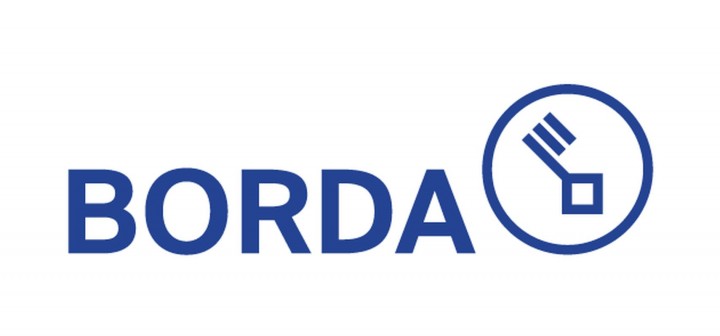Community Based Sanitation – SANIMAS Gambiran Wastewater Treatment Plant (WWTP) in Yogyakarta City, Yogyakarta Special Province, Indonesia To assist local governments and low-income urban communities to plan, implement and maintain community sanitation systems of their choice
Bremen Overseas Research and Development Association
BORDA
WWTP in Yogyakarta city is one of the 2287 operating DEWATS constructed with the support of BORDA and its partners in Indonesia.
Millions of Indonesian urban residents discharge human excrement and household wastewater either directly into the aquatic environment or indirectly into the groundwater via sedimentation tanks and percolation pits. As a result, river water in or near urban areas contains a high proportion of organic pollutants while the groundwater in almost all cities including Yogyakarta city is contaminated by E.coli bacteria. In Yogyakarta city, at least 10% of community members used river to defecate, whereas river served as a primary source of drinking water for the city residents. In-house toilets of others were usually not completed by septic tanks harming thereby environment and polluting underground water.
To tackle the sanitation problems in the cities, the Community Based Sanitation (CBS) approach was developed by BORDA and its partner network. Initiated by the National Development Agency (BAPPENAS), the inter-ministerial Water and Environmental Working Group (Kelompok Kerja Air Minum dan Penyahatan, AMPL), the ‘Water and Sanitation Program’ of the World Bank and BORDA, the approach became part of the national sanitation development program ‘SANIMAS’ (Sanitation by Communities) and has been disseminated nationwide, also with the support of BORDA.
The WWTP – communal system in Yogyakarta is designed to treat 24 m³ of domestic wastewater per day. The treated effluent is discharged into a river/water body. The treatment plant is operated and maintained by the Community Based Organization (CBO) Ngudi Waras. The effluent quality refers to Environment Ministry regulations for standard effluent of domestic waste (N 112, 2003: pH 6-9, BOD 100mg/l, TSS 100). Monitoring of effluent quality is conducted periodically by DEWATS team or government institutions.

Mission
The CBS approach is intended to assist local governments and low-income urban communities to plan, implement and maintain community sanitation systems of their choice (simplified sewerage, community sanitation center, shared septic tank).Approach
Project development support came from: - Bremen Overseas Research and Development Association (BORDA) - Lembaga Pengembangan Teknologi Pedesaan (LPTP) - Central Government, Local Government and Community in Indonesia - German Ministry for Economic Cooperation and Development (BMZ)Answer questions about the project
Prawisti Ekasanti
prawisti@gmail.com
Filter / Tags
Community sanitationOperation, maintenance and sustainable servicesHealth and hygieneProduct design and engineeringSpecific to one or several countriesTreatment of wastewater or greywaterTreatment of faecal sludgeDecentralised wastewater treatment (e.g. DEWATS)Other funding source or unspecifiedUrban (entire city)Politicians and local decision makersPractitionersInternational NGO
Related Countries
Indonesia

Project location
